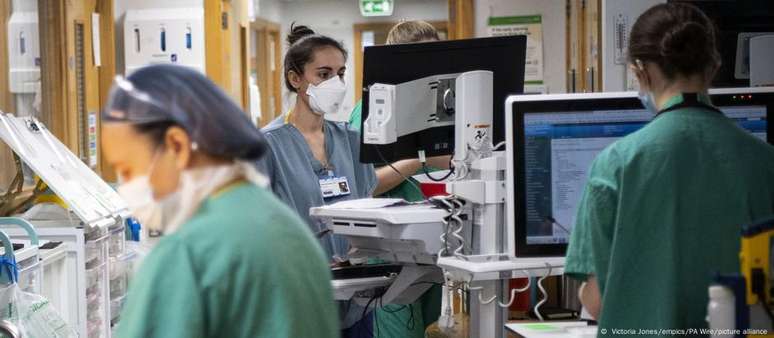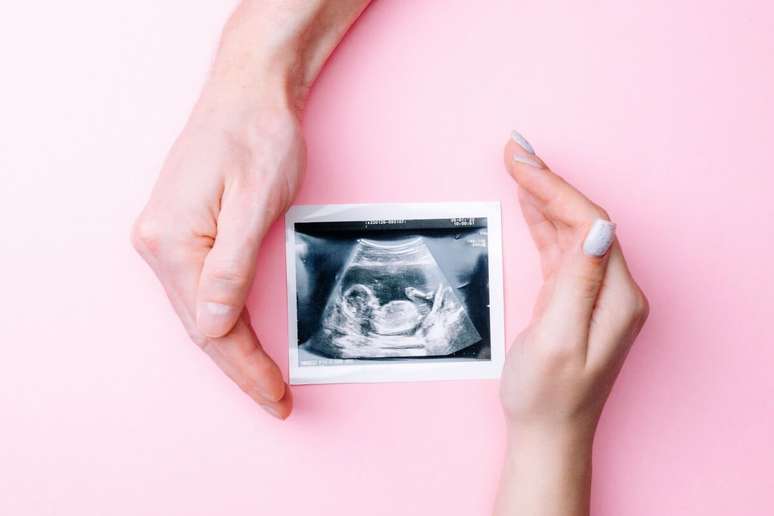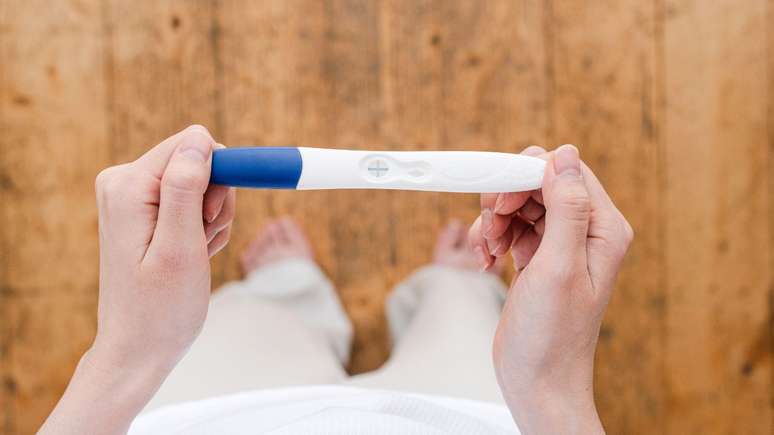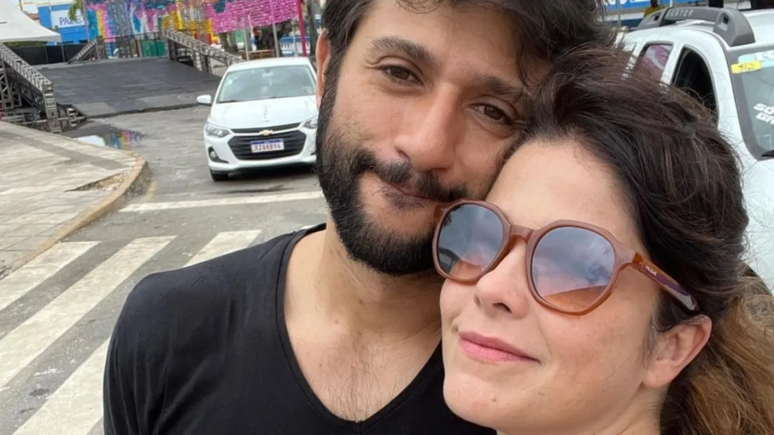In collaboration with Fiocruz, British researchers are looking for a Brazilian model of community agents to improve the health system
Summary
The United Kingdom is adapting the model of the health agents of the Sus community to transform the NHS, looking for greater prevention, proximity of the community and universal access, in collaboration with Fiocruz and professional exchanges.
After graduating and in the face of the difficulty of entering the labor market, Bernardo Xavier, 32, has decided to change his career. He exchanged the possibility of being in a law firm for the function of going on the street knocking weekly from door to the other.
The work may seem implored with respect to the legal area, but in reality Xavier occupies one of the most important places in the unified health system, the Sus. He is a health agent of the Community (ACS), responsible for bringing the basic health services closer to the Brazilian population.
This year, Xavier traveled to London with a mission: exchange experiences with officials of the United Kingdom public health system, known as NHS (National Health Service). The journey was part of the international cooperation that is exporting methodologies on to inspire improvements in the British model.
Imperial College researchers in London (ICL) are studying how to replicate the service developed by ACSS in Brazil in the United Kingdom, through cooperation with Susa technology (Resilo), the information and resilience laboratory of the Fiocruz Antonio Ivo de Carvalho Strategic Studies Center (Eece-Fiocruz).
It all started experimentally with a pilot project in the Pimlico district of London, but has already expanded to other regions of England, such as the coast of Cornwall in the south -west of the country. The work of ACSS in Sus has attracted the attention of other countries, as the British newspaper The Telegraph said, as an alternative to addressing the increase in the demand for health services of hospitals and overcrowding.
The project is also an attempt by the NHS to approach the public health model adopted in Brazil, which provides universal and integral access, that is, for everyone, regardless of health conditions and go beyond the treatment of the disease.
In June, the British government will launch a ten -year plan whose objectives is to focus on prevention and bring services to the community closer. For this, it is expected that it will bring the service of community health agents to 25 areas of England.
Because the su has become inspiration for the NHS
The transfer of knowledge between Sus and the British health service began by chance. The new medical medical and innovation researcher in the health area of ICL Matthew Harris has lived in Brazil and has played for four years as a doctor in a family health unit in Cameragibe, pernambuco.
There he met a function that did not exist in the NHS, that of the health agents of the community. “I discovered that they were really essential for my work as a family doctor, they made my job much simpler, better, more efficient and effective, because they could tell me what is really happening in the community,” says Harris.
According to him, unlike SU, NHS acts reactively. Users should actively look for the system, there is no follow-up work done by ACSS. Upon his return to the United Kingdom, Harris tried for years to implement a pilot project, but faced the resistance. “People here were not familiar with the Brazilian health system and, therefore, seemed very different,” he says.
In 2021, after showing study publications in international magazines with evidence of the results of the work of the agents in Brazil, as well as Pandemia, the project went on.
“We have a model [de sistema de saúde] Where attention is paid to treatment, procedures, doctors. With the pandemic, people realized they did not know their communities well, “says Connie Jungans-Minton, a doctor who supervises the pilot project in London.
In 2022, the doctors began to act with Fiocruz. “They wanted to strengthen the actions based on the territory, believing in a scenario of new adversities that will emerge, from the new pandemics to limit resources, wars and other events that inevitably affect the ability of the system to support their essential functions”, explains Alessandro Jatobá, releases the coordinator.
How the tests in the UK work
After making an investment feasibility survey, Harris and Junghans-Minton convinced the local service to take a test with four agents in 2021, who worked with 20 families.
The results expanded investments and led to the partnership with Fiocruz. Currently, in Pimlico, there are 24 agents who work in the middle of the round and five in part of the time, in a project that will last two years.
In this period, 25 other independent pilot projects emerged in other regions of the country, such as Oxford and Norfolk. Some have already been closed, others, like Cornwalha, have expanded. There are currently 60 professionals there, who will work for five years. The United Kingdom currently has 150 community health agents.
These agents must have a strong connection with the community in which they will work and live nearby. No health qualification is required, only that the candidate likes to solve the problems and it is discreet. There is a formation of about a month and therefore the supervision every week.
The results of the work continue to appear, says Jungans-Minton. “I feel I know the community much better, the life that people lead and what they have.” Through work, for example, it was possible to find children who act in care functions that should be performed by adults and even a case of private prison.
“Sometimes people look at systems like the NHS and say: ‘Here is where we want to arrive.’ But in reality it is a very expensive system that is not particularly effective.
In collaboration with Fiocruz, at least four exchanges are expected between professionals from Brazil and the United Kingdom, such as the journey made by ACS Bernardo Xavier, as well as seminars with researchers.
The role of ACS in Sus
Community health agents emerged in the 90s as a central role in the family health strategy (FHS). They must live in the region in which they operate for at least two years and follow up to 750 residents of a community.
They are considered a fundamental pillar of the promotion and prevention of health, especially in regions that are difficult to reach and for people in vulnerable situations. Its function is to conduct home visits and educational activities, transporting the activity of serving the trust of the population. Therefore, they hit them with the basic health units.
Currently, Brazil has 53,826 family health teams distributed throughout the country and 281,024 ACSS, according to the Ministry of Health. There are 34,788 ACSS in the north region, 105,098 in the northern region -orientale, 19,494 in the Midwest, 89,335 in the south -est and 32.309 in the southern region.
For the coordinator of Resilay, Alessandro Jatobá, ACS are the expression of how Sus can be a resilient service, that is, which can guarantee the essential functions of public health even in the face of adversity.
“It is of no use to have a health system with enormous institutional capacity, in a super rich country, if you have access barriers. And the family health strategy [no Brasil] It is very successful in generating knowledge in the area, attracting care and facilitating access, in particular of the most vulnerable populations, “he says.
The ACS, describes Jatobá, is the widespread of Sus adaptive capacity. It is he who will allow, for example, that the health service will reach the populations of Fiume, traditional and local peoples dominated by urban violence.
Experience
Bernardo Xavier knew the role through his mother, who acted as ACS for 12 years in the same place where he currently works in the Anil district, Rio de Janeiro. ” [Trabalhar como ACS] It was a plan B that became a plan A. attracted my attention to seeing how this strategy makes the difference in people’s lives, “he says.
In the clinic in which he works, there are 54 agents, who face challenges such as armed violence to reach the population. “It destroys our visits, we must stop visits when he has a police operation in the area. It is our biggest challenge,” he says. Xavier spent nine days in London in April, following home visits, and saying to British professionals such as the experience in Rio de Janeiro.
In Europe, the challenges of the health system involve the rise of hatred speech against immigrants, the impoverishment and aging of the population, as well as the increase in extreme climatic events.
British doctors are writing a book on these challenges, in which they will talk to you about the experience of adopting the Brazilian Acss model. “There are technical challenges, such as the search for funding, because NHS has many different sources of financing. Culturally, we are also just learning to look at the countries of the global South and learn from them,” says Harris.
On the Brazilian side, both Jatobá and Xavier are sure that info has a lot to teach. “Sus is the greatest result we have as a population, despite all demolition campaigns,” says Xavier. “Sus is the largest health system in the world. Those who say that it does not work, is bad informed or harmful,” adds Jatobá.
Source: Terra
Ben Stock is a lifestyle journalist and author at Gossipify. He writes about topics such as health, wellness, travel, food and home decor. He provides practical advice and inspiration to improve well-being, keeps readers up to date with latest lifestyle news and trends, known for his engaging writing style, in-depth analysis and unique perspectives.





![Tomorrow we belong to: What awaits you in the 1948 episode, Wednesday, May 21, in 2025 [SPOILERS] Tomorrow we belong to: What awaits you in the 1948 episode, Wednesday, May 21, in 2025 [SPOILERS]](https://fr.web.img3.acsta.net/img/69/d0/69d0e63218d96c484186a44dd1de6f49.jpg)



